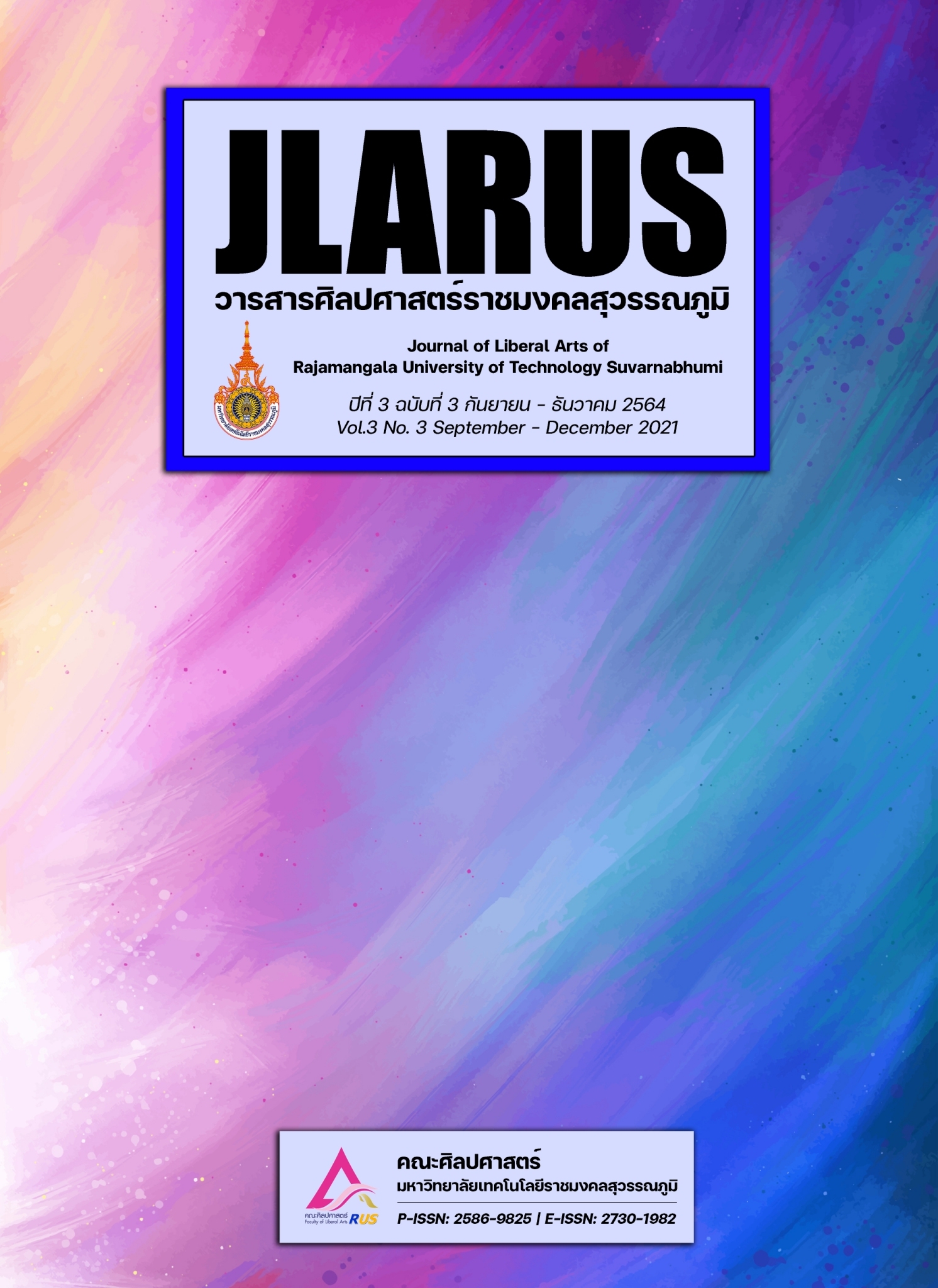PHENOMENON BASED LEARNING FOR THE DEVELOPMENT OF TRANSVERSAL COMPETENCIES: A CASE STUDY FROM FINLAND
Main Article Content
Abstract
Phenomenon Based Learning is one of the suitable alternatives to learning management in order to build transversal competencies and essential skills in the twenty-first century, for example, interpersonal and communication skills, agile thinking skills, creative thinking skills, and self-directed learning skills. Phenomenon Based Learning uses real-world phenomena as the starting point for learning. By integrating interdisciplinary knowledge and subjects, students study real-world phenomena in a holistic manner. Phenomenon Based Learning is student-centered. Students are active knowledge creators who learn by doing, while teachers act as facilitators of learning. Phenomenon Based Learning receives much attention after being officially announced in the new Finnish National Core Curriculum of Basic Education. Finland's decision to adopt this kind of learning management is likely due to the influence of educational approaches that focus on learning with hands-on practice, collaborative learning, multiple intelligences of learners, and alternative assessments. This is a Finnish educational phenomenon that gives priority to a decentralized educational system.
Article Details
References
กิร์สติ โลนกา. (2563). Phenomenal learning: นวัตกรรมการเรียนรู้แห่งอนาคตแบบฟินแลนด์. แปล จาก Phenomenal learning from Finland. แปลโดย สุนันทา วรรณสิทธิ์ เบล และ พยุงศักดิ์ แก่นจันทร์. กรุงเทพฯ : บุ๊คสเคป
ตะวัน ไชยวรรณ, และกุลธิดา นุกูลธรรม. (2564). การจัดการเรียนรู้โดยใช้ปรากฏการณ์เป็นฐาน : การเรียนรู้แบบบูรณาการเพื่อส่งเสริมความรู้ของผู้เรียนในโลกแห่งความจริง. วารสารบัณฑิตศึกษา มหาวิทยาลัยราชภัฏวไลยอลงกรณ์ ในพระบรมราชูปถัมภ์, 15(2), 251—263.
ปาสิ ซอห์ลเบิร์ก. (2559). Finnish Lessons 2.0: ปฏิรูปการศึกษาให้สำเร็จ บทเรียนแนวใหม่จากฟินแลนด์. แปลจาก Finnish Lessons 2.0: What Can the World Learn from Educational Change in Finland?. แปลโดย วิชยา ปิดชามุก. กรุงเทพฯ: โอเพ่นเวิลด์ส.
พงศธร มหาวิจิตร. (2560). นวัตกรรมการเรียนรู้จากฟินแลนด์. นิตยสาร สสวท, 46(3), 40-45.
พงศธร มหาวิจิตร. (2561). การประยุกต์ใช้แนวคิดการเรียนรู้โดยใช้ปรากฏการณ์เป็นฐานร่วมกับการเรียนแบบเชิงรุกในรายวิชาการประถมศึกษาเพื่อเสริมสร้างทักษะการเรียนรู้ในศตวรรษที่ 21. วารสารศึกษาศาสตร์มหาวิทยาลัยขอนแก่น, 42(2), 73-90.
พัชราภรณ์ ดวงชื่น. (2561). เปลี่ยนมุมมองการบริหารองค์กรการศึกษาในโลก Disruptive. วารสารบริหารการศึกษามหาวิทยาลัยศิลปากร, 8, 248–256.
ภูวดล วิริยะ. (2561). การนำเสนอกิจกรรมการเรียนการสอนเหตุการณ์โลกในยุคปัจจุบันสำหรับนักเรียนมัธยมศึกษาตอนปลาย (วิทยานิพนธ์ปริญญามหาบัณฑิต). กรุงเทพมหานคร: มหาวิทยาลัยศิลปากร
ศศิณัฎฐ์ สรรคบุรานุรักษ์, วิชยา กรพิพัฒน์, วนิดา ชูเกียรติวัฒนากุล, และภัทรปภา ทองแท่งใหญ่. (2563). การพัฒนาทักษะการเรียนรู้ที่สัมพันธ์กับชีวิตจริงด้วยการสอนแบบปรากฎการณ์เป็นฐาน รูปแบบการเรียนรู้จากประเทศฟินแลนด์. วารสารจีนศึกษา มหาวิทยาลัยเกษตรศาสตร์, 13(1), 61-81.
อรพรรณ บุตรกตัญญู. (2561). การเรียนรู้โดยใช้ปรากฎการณ์เป็นฐานเพื่อการสร้างมุมมองแบบองค์รวมและการเข้าถึงโลกแห่งความจริงของผู้เรียน. วารสารครุศาสตร์ จุฬาลงกรณ์มหาวิทยาลัย 46(2), 348-365.
Daehler, K., & Folsom, J. (2016). Making Sense of SCIENCE: Phenomena-Based Learning. Retrieved from: http://www.WestEd.org/mss
Fields, D. (2019, March). Applying Phenomenon-Based Learning to Day-to-day Lessons. Paper presented at the 2019 Oxford National Conference, Italy. Retrieved from https://elt.oup.com/feature/it/ONC19/?cc=de&selLanguage=de&mode=hub
Lonka, K. (2015). Innovative Schools: Teaching & Learning in the Digital Era. European Parliament. European Union. Retrieved from https://www.europarl.europa.eu/RegData/etudes/STUD/2015/563389/IPOL_STU(2015)563389_EN.pdf
Oxford Economics. (2012). Global talent 2021: How the new geography of talent will transform human resource strategies. Retrieved from https://www.oxfordeconomics.com/Media/Default/Thought%20Leadership/global-talent-2021.pdf
Sahlberg P. (2015). Finland’s school reforms won’t scrap subjects altogether. Retrieved from https://theconversation.com/finlands-school-reformswont-scrap-subjects-altogether-39328
Schwab, K. (2016). The Fourth Industrial Revolution: what it means, how to respond. Retrieved from https://www.weforum.org/agenda/2016/01/the-fourth-industrial-revolution-what-it-means-and-how-to-respond/
Silander, P. (2015). Phenomenon based learning. Retrieved from http://www.phenomenaleducation.info/phenomenon-based-learning.html
Symeonidis, V., & Schwarz, J. F. (2016). Phenomenon-Based Teaching and Learning through the Pedagogical Lenses of Phenomenology: The Recent Curriculum Reform in Finland. Forum Oświatowe, 28(2), 31–47.
Tissington, S. (2019). Learning with and through phenomena: An explainer on phenomenon-based learning. Paper presented at the Association of Learning Developers in Higher Education Northern Symposium, Middlesbrough UK.
Zhukov, T. (2015). Phenomenon-based Learning: What is PBL?. Retrieved from https://www.noodle.com/articles/phenomenon-based-learning-what-is-pbl


